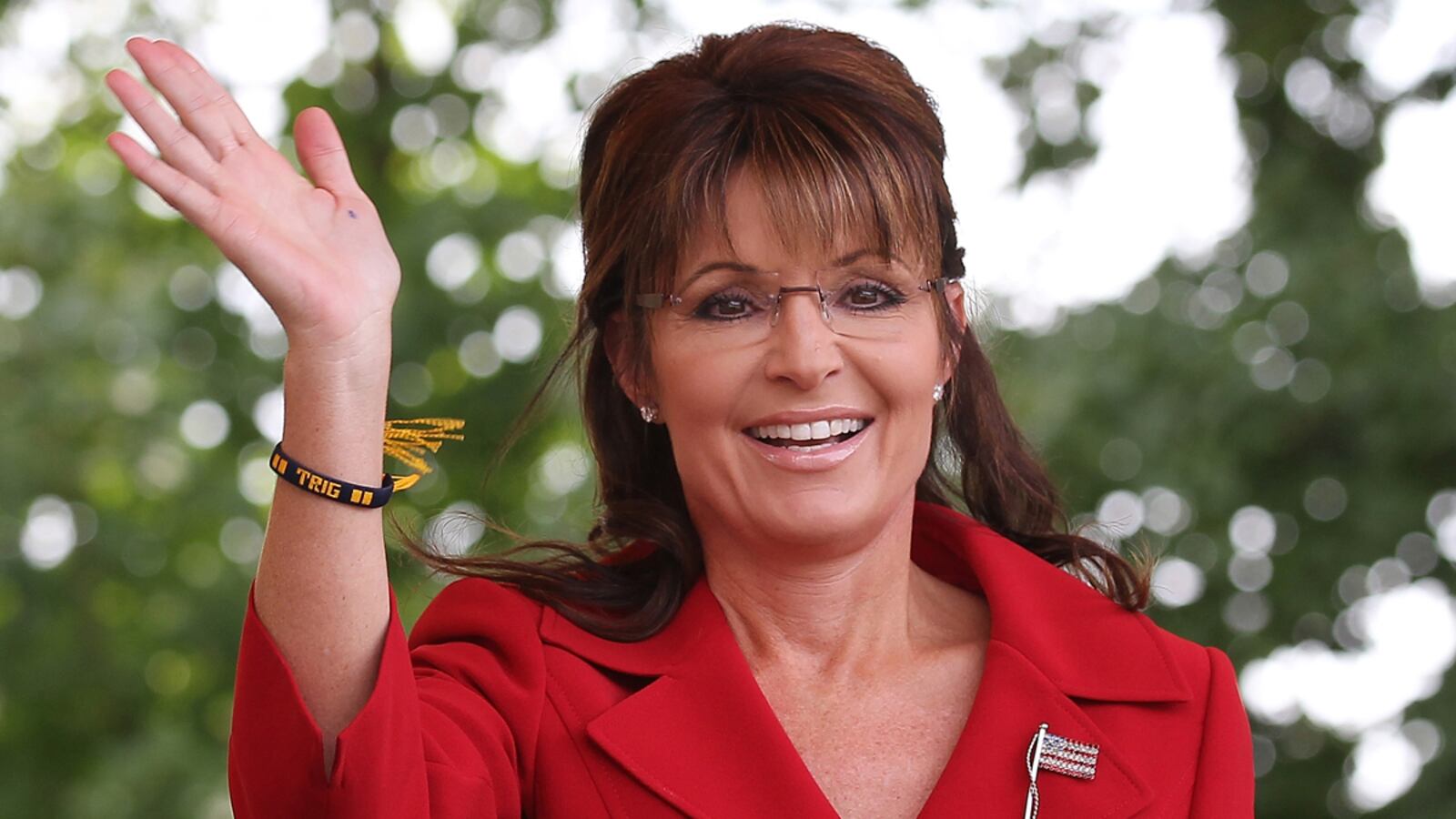It was a secret hidden in plain view, an illusion sustained against all evidence, a reality show posing as political reality.
Is anyone really, truly surprised that Sarah Palin isn’t running for president? It became more obvious with each passing week that this charismatic woman with passionate fans and equally passionate detractors was engaged in a long-running tease.
By the time she announced Wednesday, on conservative Mark Levin’s radio show, that she would stay out of the 2012 sweepstakes, it had long been apparent that Palin hadn’t lifted a finger toward a White House bid. Most Republicans didn’t want her to run, as her sinking poll numbers made clear.
Palin’s real constituency, truth be told, was the one she loves to torment, the lamestream media. We in the news business were her enablers, broadcasting her tweets, following her Facebooking, chasing after her aimless bus tours on the possibility that maybe, just maybe, she would take the presidential plunge.
What explains such behavior? Palin is box office. She drives traffic and ratings. There was a time when you could put her name in the headline of any garden-variety story and the search engines would find you and the clicks would follow.
Palin bowed out in a fairly conventional way, with a statement. After “much prayer and serious consideration,” the former governor said, she had decided that “my family comes first.” She slammed the door on a third-party bid as well, telling Levin “that would just guarantee Obama’s reelection.”
Her decision makes all the sense in the world. Had Palin run, she undoubtedly would have lost the GOP nomination, especially this late in the game, and her mystique would have been dented for all time. In the process, she would have had to deal with annoying journalists, shared the stage with eight or nine other contenders, and her shaky command of the issues might once again have come under scrutiny. She would have been forced to give up her million-dollar Fox News gig and hire a team of political handlers. Anyone who remembers her disastrous VP run in 2008 can understand why she’d have no desire to relive the experience on steroids.

Put aside the White House fantasy for a moment, and what Palin has accomplished is remarkable. She transformed herself into one of the biggest celebrities on the planet. From her two blockbuster books to the Alaska reality series to her Fox fulminations, Palin became a brand, as did everyone in her orbit. Daughter Bristol, fresh from feuding in the tabloids with her ex Levi, recast as a spokeswoman for unwed mothers, did a turn on Dancing With the Stars.
But the reason Sarah was able to defy political gravity for so long was the endless tease, the constant hints that she might just jump into the arena, rally the Tea Party faithful, try to win Iowa on a shoestring and ride that rocket to the White House.
The political pros knew better, as the months dragged on, and even journalists decided to put their chips on the outsize figure of Chris Christie as their last, best hope for livening up a rather dull race. The jig was up days ago when Palin said that she might have more influence as a talking head than by taking on the title of president. (Reporters are terrified that the eminently rational Mitt Romney will now cruise to the nomination, not because they don’t like the guy but because such a scenario drains all suspense from the contest even before it gets underway.)
What, in the end, has Palin contributed to the political discourse? She is not identified with any overriding issue; indeed, issues have always been secondary to her persona. What Palin has pursued is the politics of grievance, conveying the notion that “they”—the establishment, the elites, the academics, the MSM, the condescending inquisitors who demand to know what newspapers she reads—are out of touch with the real America. She channeled the anti-Obama sentiment out there in a more visceral way than any of her potential rivals.
But to what end? By reacting to every slight, real and perceived, whether it came from David Letterman, The New York Times, or some obscure blogger, Palin too often painted herself as a victim—garnering sympathy from the right but rarely managing to rise above the fray. The ultimate example—and her greatest misstep—came when she accused the media of perpetrating a “blood libel” against her after Gabby Giffords was shot and others killed in Arizona. She was right that some pundits were unfair to implicate her in the violence, but utterly tone-deaf at a moment when the nation wanted to hear words of healing, not incitement.
Had Palin acknowledged months ago that she had no plans to run for president, the traveling circus would have moved on, dimming the lights that surround her. She would not have been on the cover of Newsweek. She had every incentive to keep the threat alive, and so too did her chroniclers, not wanting to surrender her as an inimitable character in the political wars.
There will be much talk now about how Palin can still impact the “debate,” about the uses of her megaphone, about who she might endorse. But most of that talk will be empty. Sarah Palin will continue to be a huge star, perhaps serve as a party fundraiser, but her days as a powerbroker, and serious political player, are over. She has at long last ended the pretense, and now can resume the lucrative business of marketing the one product she excels at promoting: herself.





